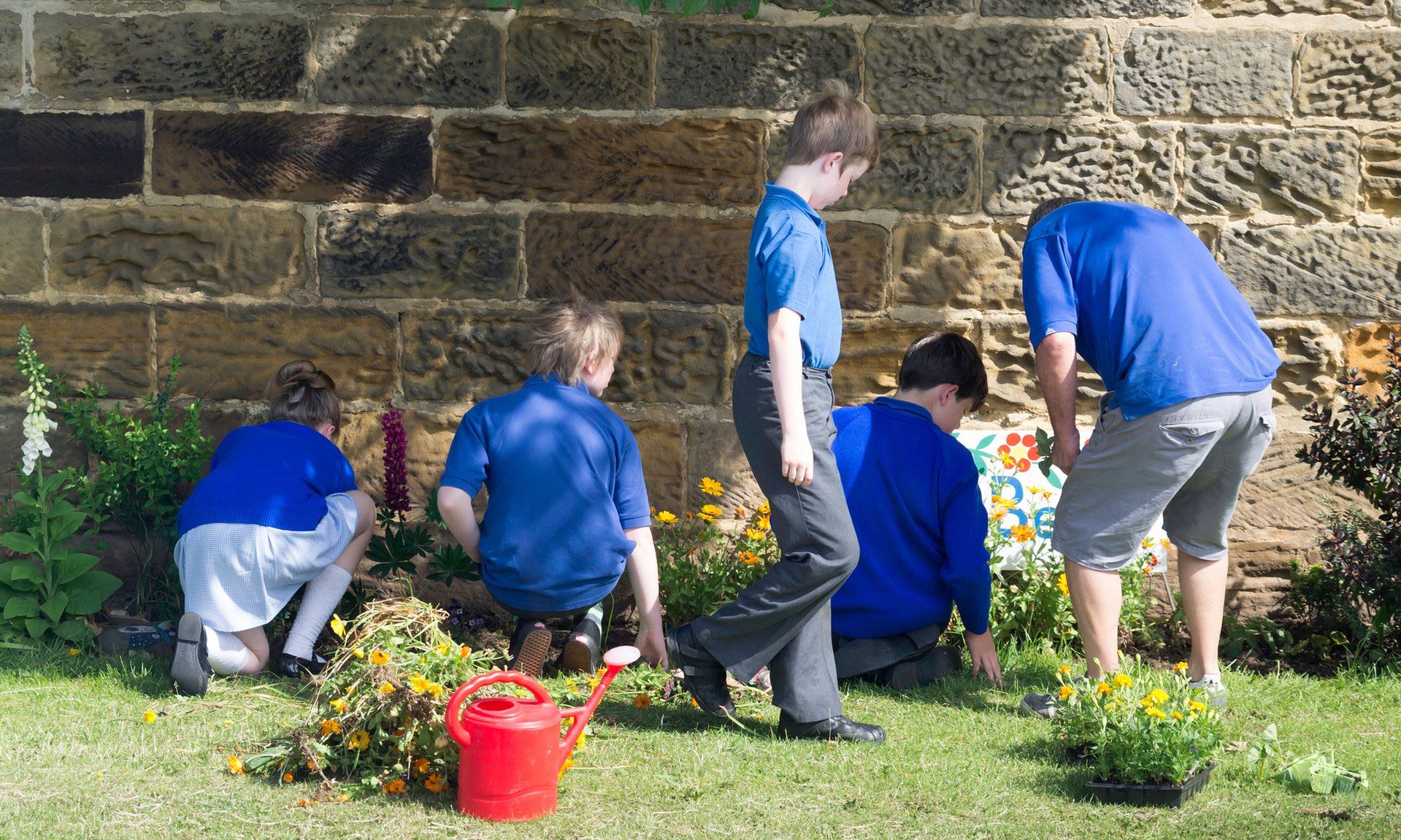Gardening is about as popular with most head teachers as showing DVDs on a Monday morning. But children can learn so much from growing plants.
“What are those?” one of my pupils asked me.
I looked over at two large raised beds. A warm autumn sun was falling on the school garden. “Those are potatoes,” I answered.
The pupil in front of me was an amiable girl called Jennifer. In class she usually had her head down, focused on the work in front of her. Today, however, her face was furrowed as she looked over at the raised beds.
From our partners:
“But…” she began. Her voice trailed off as she took a few steps toward the plants. With a sinking feeling I knew where this conversation was going.
Jennifer started again, “But they’re green. Aren’t potatoes brown?”
I nodded. “Well, the bits we eat, the roots, are brown. What you’re looking at is the part above the soil. That’s what all those leaves are.” I tried my hardest not to sound patronising.
Jennifer looked baffled. She shook her head and just said, “Hmm.”
I knew that the situation called for drastic action. I reached over to the potato plant, grabbed it by its green foliage, and pulled. As the plant was raised into the air, several large tubers dropped onto the compost. I held the plant aloft, showing off a few more potatoes that were still attached at the roots. I think the variety we planted that year was ‘Kestrel’. They were good potatoes. I was happy with them.
Jennifer, on the other hand, stood with a shocked look on her face. It was an expression somewhere between disgust and horror. It was as if I had just done something reprehensible. I’d killed the plant. She took a few steps back. I tried to reassure her, “Jennifer, it’s okay. You have to dig up the plant to get the potatoes. Look.” I held one out for her to touch.
As she took the potato in her hand, understanding began to spread across her face. Once removed from the stems and leaves, the tuber was now something she recognised. She looked at me and smiled. It was a genuine smile and she simply said, “I had no idea that this is where they came from.”
For me, that pretty much sums up how much young people seem to know these days about their food and its production. And as for any wider understanding of horticulture – forget it.
This is why I started an eco-garden at my secondary school a few years ago. It was a difficult project to get started and has been difficult to maintain. However, it has been truly rewarding. When I first approached my school about building a garden I was told, “Oh yeah, a few people have tried that. No one seems to have had any success.” There had been a small sliver of land set aside for a garden when the school was built, but except for a dead apple tree someone had stuck in the boggy ground some time ago, nothing had been developed. It was just a neglected area of weedy grass.
“Gardening is the best medicine for the mind.”
The first thing I did was to ask the school if there was any money available to kick-start the garden. They looked at me as if I had just asked to take my pupils free-climbing over a gorge of broken glass and pit vipers. The senior management’s faces said no before their mouths even opened. There is an unspoken rule about most requests for money in any secondary school: if your request does not involve raising attainment (exam results), then it’s probably best not to ask. Unfortunately, there is no exam which requires pupils to identify a foxglove from a cornflower, and therefore gardening is about as popular with most head teachers as showing DVDs on a Monday morning. We just don’t do those sorts of things; not if you want to keep your job.
I quickly realised that the money would have to come from somewhere else. I looked online and found that there was funding available through several charities. I applied to Awards for All, which is funded through the Big Lottery Fund. I filled in the forms and mailed them off. I waited. I crossed my fingers. A short time later I received a reply. Their answer was yes. I was able to secure enough money to dig out part of the garden, put in paths and a seating area, build a few raised beds, and buy a few plants. It was a start.
To the school’s credit, once they found out I had secured some funding they did find a little money to build a shed and purchase some tools for the pupils. I’ve always found that once momentum gathers behind a project, more and more people are willing to jump on board. When a small digger rolled in to start excavating out the compacted clay soil, people took notice.
Since then we’ve had some real successesand some minor failures. Despite any setbacks, developing the school garden has been extraordinarily rewarding. It is a space which helps to connect pupils to the natural world. Interacting with nature teaches young people more than most textbooks. Something as simple as a garden can open up questions about both science and philosophy – show me a worksheet that is able to do that. In short, every subject can find beneficial links to gardening and horticulture.
Remembering that day and the look of shock and amazement on Jennifer’s face about something as simple as a potato was a wonderful experience. We need pupils to be given more opportunities to learn about horticulture and interact with nature. Schools need to realise that just because something can’t be quantified and stuck on a spreadsheet, doesn’t mean it isn’t important.
“Education is about more than exam results. What should matter most in education is inspiring young people to be critical of the world around them, to actively engage with knowledge, and to ask questions about their environment – even if that questions is about something as simple as where a potato comes from.”
This feature is written by Tom Smart & originally appeared in The Guardian.
















